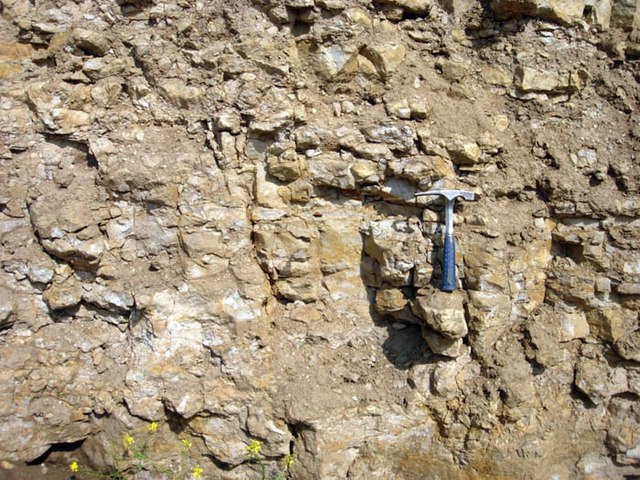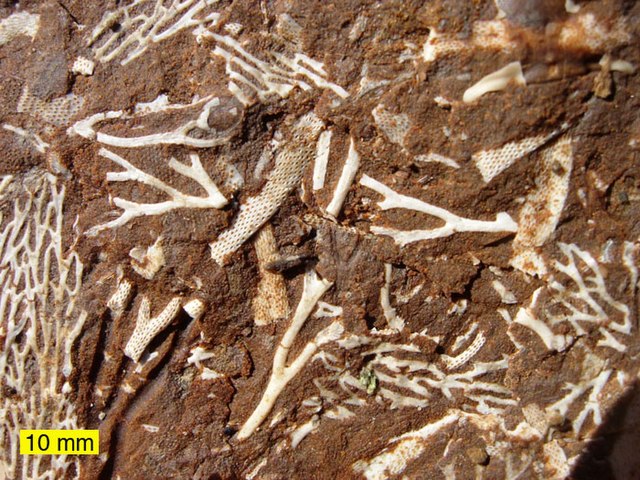Torbanite, also known historically as boghead coal or kerosene shale, is a variety of fine-grained black oil shale. It usually occurs as lenticular masses, often associated with deposits of Permian coals. Torbanite is classified as lacustrine type oil shale. A similar mineral, cannel coal, is classified as being a terrestrial form of oil shale, not a lacustrine type.
Photomicrograph of torbanite, from Bathgate, Scotland
Oil shale is an organic-rich fine-grained sedimentary rock containing kerogen from which liquid hydrocarbons can be produced. In addition to kerogen, general composition of oil shales constitutes inorganic substance and bitumens. Based on their deposition environment, oil shales are classified as marine, lacustrine and terrestrial oil shales. Oil shales differ from oil-bearing shales, shale deposits that contain petroleum that is sometimes produced from drilled wells. Examples of oil-bearing shales are the Bakken Formation, Pierre Shale, Niobrara Formation, and Eagle Ford Formation. Accordingly, shale oil produced from oil shale should not be confused with tight oil, which is also frequently called shale oil.
Outcrop of Ordovician oil shale (kukersite), northern Estonia
Photomicrographs showing a cannel coal (top) 100% organic matrix and a rich oil shale (bottom) with relatively low mineral content
Fossils in Ordovician oil shale (kukersite), northern Estonia
Autun oil shale mines





